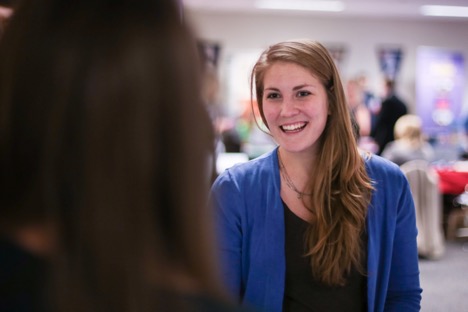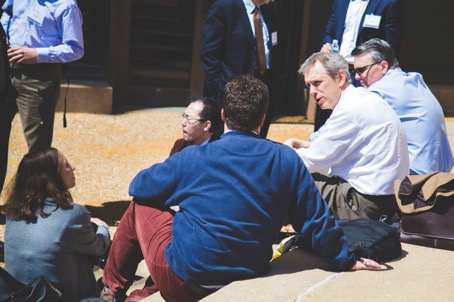So you’ve studied abroad. Now what? Let’s say you’ve taken a foreign language course. Why did you spend the time? You’re involved in an international club or organization. How will this benefit you? Why is this cultural awareness necessary? Having a global perspective is now crucial to the workforce, as millions of cross-border relationships are developing in various sectors in the economy. Your international experiences matter; showcase them and continue to grow them with the CAP Global Perspective Module.
“When I traveled in Paris and London for study abroad, I kept a journal with me the entire time. At the end of the day I would reflect on the things that I learned from the people around me. I went to a concert at Wembley Stadium in London and spent time with two English girls in the line. We had some lingo barriers. For example, a Bandaid is called a rubber and pants are trousers and underwear are pants. At one point one of the girls looked at her friend and said ‘Shannon she doesn’t know what you’re saying.’ By writing this experience down in my journal I was able to reflect on the small differences in language that lead to misunderstandings within different cultures.” -Kaitlin Obermeyer
Even some of the most memorable experiences require reflection. Below is a list of reasons why it’s necessary to reflect on these international experiences:
Reveal Importance: Recording your international experiences will reveal the impact they have made on your future plans and your self growth. Writing them down will make thoughts, facts and feelings more clear and remind yourself of what to focus on when it comes to these experiences.
Refer Back: Ideas do not stay for long, so it’s important to refer back to what you have learned in the past and keep these big ideas flowing. Reading back through past records of international experience is fascinating and provides valuable insight into particular moments and thought processes.

Inspire a Broader Understanding: Truly recognizing cultural differences requires having meaningful conversations, respecting different world-views and escaping comfort zones. Having these amazing experiences is one thing, but being able to apply them to daily life is what makes them matter in the long run.

Form Future Goals: Students with international skills and cultural awareness often have better job prospects when they graduate. Not sure where to start? Check out this guide. Being able to communicate your “international work skills” to employers could be the key to landing your dream career.
The American work and social culture has moved away from solely communicating and building relationships within our own country. We have expanded our friends, family and team members to people from all over the world. Whether or not you have traveled abroad, it’s likely you have had global relations or cultural experiences. The CAP Global Perspective Module exists to inform students about the importance of cultural awareness and international skills, while allowing them to reflect on the significance of their international experiences.





